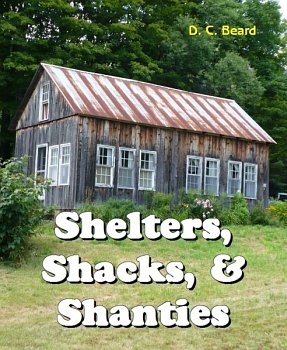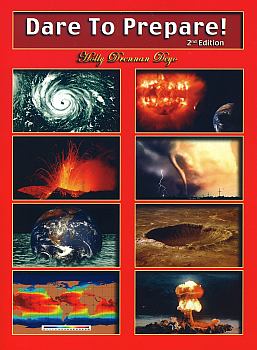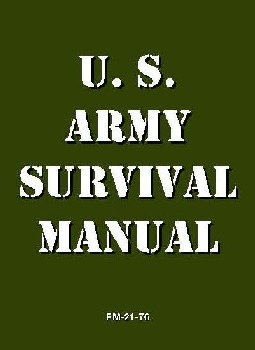Could You Live in a 12' x 12' Cabin With No Water or Electricity?
Wednesday, May 26 2010 @ 10:46 AM CDT Views: 834

Returning to the U.S. after a decade of aid work, William Powers finds himself in the heart of the world's richest nation, but living a subsistence life.
By William Powers
Editor’s Note: Why would a successful American physician choose to live in a twelve-foot-by-twelve-foot cabin without running water or electricity? To find out, writer and activist William Powers visited Dr. Jackie Benton in rural North Carolina. No Name Creek gurgled through Benton’s permaculture farm, and she stroked honeybees’ wings as she shared her wildcrafter philosophy of living on a planet in crisis. Powers, just back from a decade of international aid work, then accepted Benton’s offer to stay at the cabin for a season while she traveled. There, he befriended her eclectic neighbors — organic farmers, biofuel brewers, eco-developers — and discovered a sustainable but imperiled way of life. In this excerpt from Twelve by Twelve: A One-Room Cabin off the Grid and Beyond the American Dream, Powers first arrives at the cabin in the cold of early spring.
It was dark when I drove up to Jackie’s place. Toting a backpack, I groped my way along paths through a pitch black Zone 2 and into Zone 1, finally making it to the unlocked 12’ x 12’. I fumbled around for a light switch; naturally there was none. I managed to find matches and light candles. After exploring Jackie s bookshelves and the tiny loft that held her now my single mattress, I wrapped up in a couple of blankets and sat in her great-grandmother’s goosehead chair for one hour, then two. I listened to the slight murmur of the creek, not completely sure of what else to do. As the quiet and darkness pressed in, so too did a mix of joy and trepidation.
Jackie told me how astonished she sometimes was to wake up in a Garden of Eden. I felt no such thing my first mornings there. I rose at dawn, climbed out of the loft, and made a strong cup of tea. Cocooned in a handmade quilt in the rocking chair, I stared out into the cold gray light: the steam from my tea fogging my glasses and the windows; No Name Creek hardly stirring beneath a partial sheet of ice; the new moon cold and hidden beyond the horizon someplace; the stark 12’ x 12’ slab of frigid concrete pretending to be a floor.
Without Jackie there, the place seemed completely different. Instead of her contagious enthusiasm and intelligence, there was only me. Me and a bunch of plants, barely breathing. A late frost hit on my third night, causing hundreds of farmers throughout the county to lose their strawberries and tomatoes, but the diversity and native-plant focus of Jackie’s farm hedged against the suddenly frozen soil. Some of her plants froze to a crisp and died, but most of them held on.
Whereas I’d seen only the nourishing-of-it-all in the light ofJackie’s charisma, I soon realized that, aside from the garden beds in Zone 1, the earth around me was mostly slumbering. Stick season, they call it, with the skeletons of birch and oak and the sticky buds of leaves to come. Stalks of winter wheat, hoary vines on the trellises, and last year’s asparagus. And silence.
I walked down to the creek, listened to it murmur, stuck a finger in. Frigid. I yanked my frozen finger out. Beyond the creek, a rolling terrain with more late-winter woods, pasture, and a higher forest beyond the pasture, all of the landscape edged with a crisp gray sky. I stopped for a moment to pick an empty cocoon from a branch, noticing a crack where the butterfly had emerged and flown out into life.
As the lifeless shell crunched between my cold fingers, turning to a dry, useless powder, I wondered what in the world I was doing here. Should I have come at all? I could be helping Liberian refugees, I thought, saving rainforests in Bolivia, or distributing malaria-preventing bednets. The things I was trained to do. Or if I was to be in America, I should be making myself useful, working twelve-hour days at the UN pressing for better refugee policies or sending out scathing op-eds and speaking at conferences. But this, pardon me, dead place just made me feel the deadness of the society around me even more. That dead pond in the industrial park; the techno-hospital’s fast food. Trapped in a looping mind, I reasoned that coming to the 12’ x 12’ had been a mistake.
At night I’d sometimes light a little bonfire outside and listen to the hiss and sizzle, look into the orange coals, and stare at the stars, as cold up there as I was down below. The fire would die out, and I’d climb the 12’ x 12’s ladder to Jackie’s loft and try to get cozy in her bed. I’d have no dreams at all. It was as if the nonlife, the frigidity of the place, was mirrored in my dreams. In that tiny house, snuggled in a vast forest, secluded in its upper loft, my spirit felt as fallow as the scene around me.
A warm pile of eggs is what would begin to thaw me out. My eleven-year-old neighbor, Kyle Thompson, beckoned to me one morning as I walked up Jackie’s dirt road toward Old Highway 117 South.
He asked me if I was living at Jackie’s, and I nodded. Without further introductions, he took my sleeve and led me over to the important business at hand: a disheveled woodpile, where a Muscovy duck squatted over her nest. With a stick, Kyle prodded the duck gently to reveal a large pile of eggs beneath her in a bed of hay and feathers. We’re going to have fourteen ducklings, he said, a little proudly.
I looked at Kyle. His thick, dun-brown hair flopped above a pair of blue eyes. He had a couple of freckles under each eye and a slight tilt to his head. Though I later found out he wanted to be an engineer, and I had already discovered his love of animal husbandry, his facial expression suggested how I pictured the young James Joyce in Portrait of an Artist as a Young Man. I looked back down at the eggs. Kyle spoke excitedly about the ducklings to come, but I was doubtful. Amid the frost-covered wood and gray background, they looked like cold marble, fossilized dinosaur eggs, things not destined to bring forth life.
Kyle was practically the only person I saw during those frigid first days at the 12’ x 12’. The colorful cast of neighbors Jackie had described, Mexican furniture makers, permaculture pioneers, and even Kyle s parents, the Thompsons all seemed to be in hibernation. Even Kyle I didn’t see much; sometimes I’d spot him a football field’s length away, across the field and pond, looking expectantly into his woodpile, talking to the mother duck, trying to persuade life to happen. I was otherwise alone. I felt bare to the point of barren, just another skeleton, like the plants or the dark new moon.
What was I to do? Not do, be, Jackie had told me. In her invitation note, she mentioned that she was not asking me to house-sit or farm-sit. Her guidance was clear: I was simply to sit. It would become apparent that, for all the variety and fruitfulness of her gardens, they were mostly on autopilot. She planted and arranged in ways that minimized weeds by not having rows, and she used plants that needed little water. Permaculture, to Jackie, was to be a blessing, not a burden. Her motto for her gardens was the same as the motto of her house: Think small. No, not labor in her fields but rather labor with her fields and also observe the fields. I realized how fortunate I was to be able to take this leisure time; I’d been frugal during years of work abroad and had savings. So now, like much of nature, so still, just sitting, the minerals, the trees, the water in the pond, I too began to feel my anxious mind slow down as the days passed and I tuned into nature, slipping into what the Chinese call wu wei, an alert inactivity. This is not considered sloth but a kind of waiting in the esoteric sense of the word: present, attentive, as when Jesus said to be like a servant who does not know at what hour the master will return. An outward nondoing; an inner readiness.
The world was numb; I was numb. But numb isn’t dead. Kyle called me over to the woodpile, pointing out the very first hairline crack in one of the fourteen duck eggs. I finally felt that something might actually happen. That if I waited patiently enough, the world might reveal itself to me.
All the surprises at Jackie’s helped to gradually thaw me out. Perhaps there’s a cure in the practice of curiosity. With no electricity, piped water, or any of the conveniences we are so accustomed to, I was forced to see everything anew. The first puzzle: How in the world was I to bathe?
Jackie didn’t leave an instruction manual, an Idiot’s Guide to living in a 12’ x 12’. There was no shower, of course, and the creek was still too darn cold. But so was the rainwater Jackie harvested from the two gutters running off the 12’ x 12’s roof. I took one bucket shower, cursing as I cupped freezing rainwater over my head, before I discovered a five-gallon rubber diaphragm on her back porch labeled Sun Shower. The directions were on the side of it, and I followed them, filling up the rubber bag and letting the morning sun heat it. Midday or evening, I strung it up in a tree beside the 12’ x 12’ and felt the positively hot water stream over my body, which became a sensuous daily pleasure. I appreciated every bit of that hot water, and it was all the lovelier knowing that its energy came directly from that day’s sun, producing no dangerous greenhouse gasses. And the runoff watered the gardens; nothing wasted down a drain.
I began to appreciate water. It felt so immediate. Instead of being invisibly piped into my home from some deep aquifer or distant reservoir, it fell from the sky into the pair of fifty-five-gallon tanks beside the house. When I arrived they were full; when I left, ditto. All of my dishwashing, laundry (I followed Jackie’s lead and used only biodegradable soaps), bathing, and cooking water simply came out of the sky, passed through my hands, and then went directly back into the earth to water the food I ate.
Less appealing was the dilemma of the toilet. Instead of a flush toilet, I discovered that Jackie used a five-gallon composting toilet under the porch out back. It featured a regular toilet seat, but there was no chemical-filled cesspool below ground just a standard white bucket. Throw some fresh-smelling cedar chips in after every use, and there was absolutely no foul odor. The conundrum occurred when the bucket started to fill. And fill. How to dispose of it?
I fingered along the spines of Jackie’s scientific books, until I came to one with a rather nonthreatening title: The Humanure Handbook. For 21st-century homesteaders like Jackie, it’s the bible of composting toilets. So many designs! True to her simplicity, Jackie’d chosen the simplest model, the concealed five-gallon bucket, the contents of which, The Humanure Handbook informed me, I was to simply compost. Yes, in fourteen weeks human feces are soil just like any other soil and can be plowed back into your garden. So I carried the bucket over to the compost pile, intending to follow the Handbook and dump it right over my eggshells and carrot peels. But at the last minute I couldn’t go through with it. The science notwithstanding, I felt queasy over the aesthetics; I grabbed a shovel and buried the contents deep in the woods.
Adjusting to life without electricity was relatively painless. I’ve worked in subsistence economies around the world and have gone for short stints without electricity. The only oddity was that I was in the heart of the world’s richest nation but living a subsistence life. No humming refrigerator, no ringing phones (I decided to go cell phone free in the 12’ x 12’), and none of the ubiquitous standby lights on appliances, those false promises of life inside the machines. Instead: the whippoorwill’s nocturnal call, branches scraping quiet rhythms in the breeze, and groggy No Name Creek.
Looking east from the 12’ x 12’ toward the creek into the ink black night, without the slightest glimmer of industrial society, I thought, Could I really be inside the borders of a high-tech superpower? To the west, I could barely make out the Thompsons' porch light, and Jose’s and Graciela’s lights cast a glow on the trees above their homes.
Fire replaced electric light. Sparks from outdoor fires would briefly escape gravity and reflect off the creek, before disappearing into the massive dark sky and the flaming white points of the stars above. Most luxurious of all, each night was blessed with the glow of candles. On the eleventh night, I noted in my journal, I lit the candles without even thinking about it. I simply came in after a hike, struck a match, lit them, and began cooking, candle lighting having become as automatic as switch flipping. The house glowed from the inside like a jack-o -lantern. Sometimes I’d step outside and look in through the windows, a dozen or so candles inside, as cheery as a birthday cake, the 12’ x 12’s point lit with primordial fire amid dark woods and I’d feel this smile spreading across not just my face but my spirit as well, lifting me with a feeling of emotional weightlessness.
Copyright © 2010 by William Powers. Reprinted with permission of New World Library, Novato, CA.
William Powers has led development aid and environmental initiatives in Latin America, Africa, and Washington, DC. The author of the memoirs Blue Clay People and Whispering in the Giant's Ear, his essays on global issues have appeared in the New York Times, the Washington Post, the Atlantic, and Slate. His Web site is www.williampowersbooks.com

http://hiddenmysteries.com/xcart/product.php?productid=19908
Written for the young explorer, but with today's economy in the crapper, it could be one of the most needed survival books in print.

http://hiddenmysteries.com/xcart/product.php?productid=18409
A lot of people have asked why the name Dare To Prepare. They understand "prepare" but "dare" is puzzling. Some think it's just a catchy title, but there's more. Those who choose to prepare have acknowledged, on some level, that things are changing all around us - rapidly. Sometimes it feels like it's more than we can deal with. We get overwhelmed thinking can I do this?

http://hiddenmysteries.com/xcart/product.php?productid=19304
The most popular survival manual ever published.
Used for decades by the United States Army.








What's Related